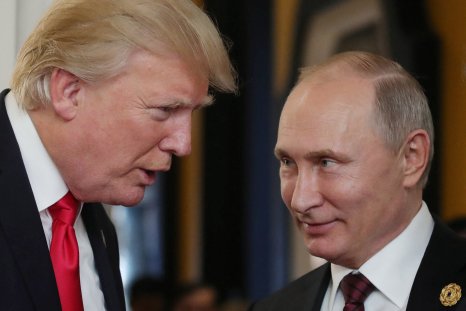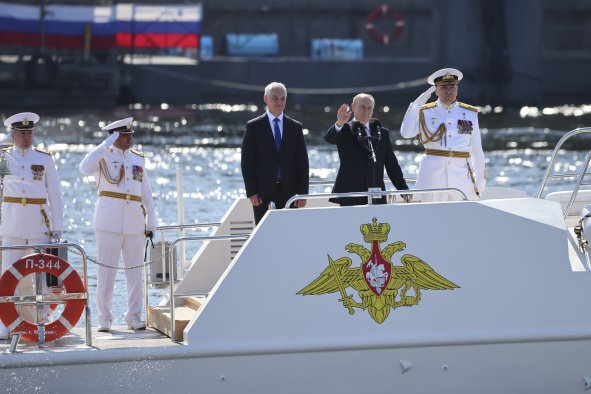Beijing has rebuked the Quadrilateral Security Dialogue (Quad) after its thinly veiled criticisms of China during a meeting where U.S. Secretary of State Antony Blinken hailed the group as a "strategic alignment."
The top diplomats of the Quad, an informal grouping comprising the United States, India Japan, and Australia, gathered in Tokyo, Japan, on Monday to discuss furthering cooperation and threats to the international order.
"This is a moment of unprecedented strategic alignment among our four countries," said Blinken. "We have four countries that are united by a shared vision for a free and open, connected, a secure, a prosperous, resilient Indo-Pacific region."
In a regular press briefing on Monday, Chinese Foreign Ministry spokesperson Lin Jian reacted by demanding that "countries outside the region" refrain from "fueling tensions in the region."
"China believes that cooperation between countries, as well as regional initiatives, should be conducive to peace, stability, and prosperity in the region" instead of "forming exclusive clubs that undermine trust and cooperation among regional countries," said the spokesperson.
During the press conference for the event, Japanese Foreign Minister Yoko Kamikawa cited "unilateral attempts to change the status quo by force in the East and South China seas."
Neither Kamikawa nor her counterparts called China out by name. However, the country's growing assertiveness in the region was a central focus of the talks, which occurred just over a month after a clash between Chinese forces and a Philippine supply convoy within the U.S. ally's exclusive economic zone that left several Philippine troops injured.
Secretary of State Blinken went on to detail what a "resilient Indo-Pacific region" entails.
"That means, simply put, that problems are dealt with openly; rules are reached transparently, applied fairly; that goods, that ideas, that people will flow freely and lawfully across land, across cyberspace, the open seas," he said.
Newsweek contacted the U.S. Department of State via email for comment.
Australian Minister for Foreign Affairs Penny Wong in her remarks touted a dual strategy of "reassurance and deterrence" to support "a strategic balance in our region so that no one country dominates and no country is dominated."
Indian Foreign Minister Subrahmanyam Jaishankar stressed the Quad "is not a talk shop but a platform that generates practical outcomes."
One practical application, he pointed out, is the plan the Quad announced that day to expand collective maritime security efforts in the Indian Ocean.
Don McLain Gill, Manila-based geopolitical analyst and lecturer at De La Salle University's Department of International Studies, said this move is critical for "strengthening the rules-based order in the entire Indo-Pacific."
He said that the Chinese navy has been boosting its presence in the Indian Ocean over the past decade.
"Along with establishing its first offshore naval base in Djibouti, Beijing has also forged agreements for military access to ports in Pakistan, Bangladesh, Myanmar, and Sri Lanka. It has also invested in constructing terminals in Sudan, Kenya, and the United Arab Emirates," Gill added.
Gill went on to cite Chinese encroachments on Indian, Bhutanese and Nepalese territories in recent years.
He also pointed to agreements with African states bordering the Western Indian Ocean that he says allow China to "unfairly compete with local small-scale fisheries" within those countries' exclusive economic zones.
He added that Washington and Quad strategies have until now focused on the Eastern Indian Ocean at the expense of the Western part of the waterway and that it's time for a more holistic approach.
On Sunday, Blinken and Secretary of Defense Lloyd Austin joined their Japanese counterparts in Tokyo. They agreed China "seeks to reshape the international order for its own benefit at the expense of others," according to statements issued later by both countries.
They also emphasized the "critical importance of continuing to enhance U.S. extended deterrence" to Japan, including the U.S. nuclear umbrella. The U.S. officials also reiterated Washington's security treaty with Tokyo extends to the disputed Senkaku Islands, where China's heavily armed coast guard continues to challenge Japanese control.
Disclaimer: The copyright of this article belongs to the original author. Reposting this article is solely for the purpose of information dissemination and does not constitute any investment advice. If there is any infringement, please contact us immediately. We will make corrections or deletions as necessary. Thank you.



